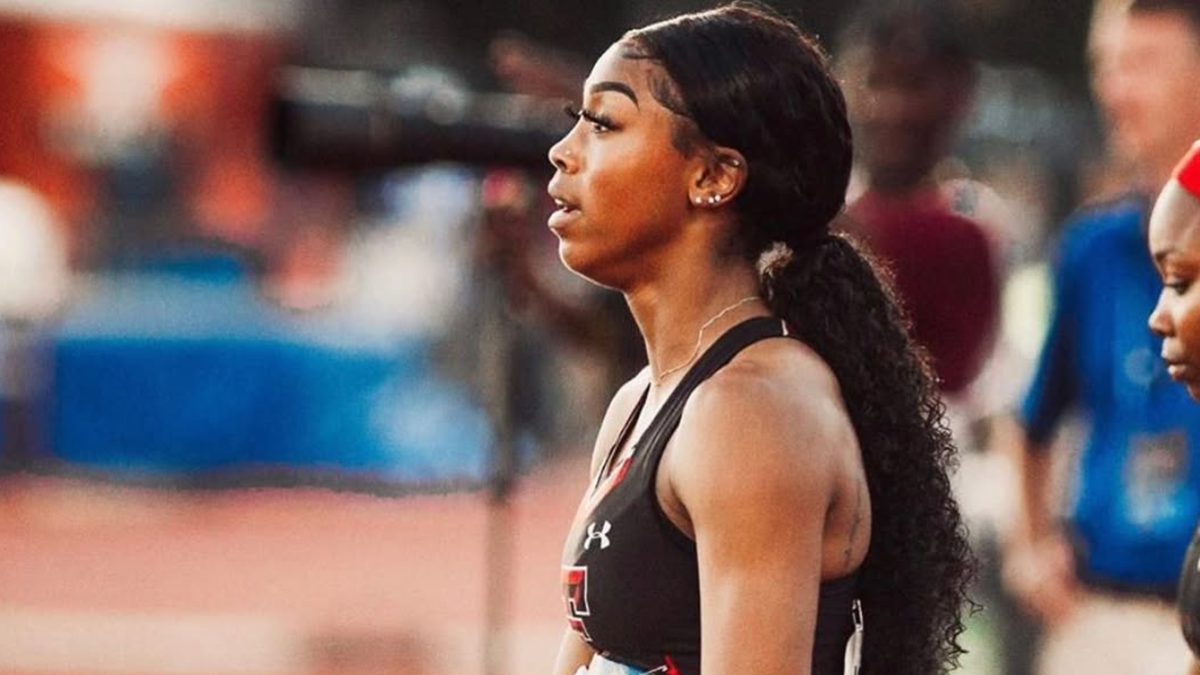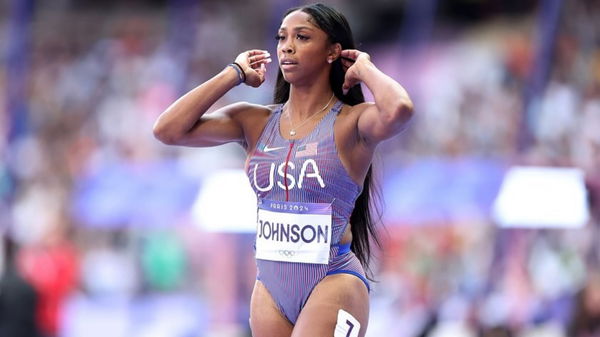
Imago
Alaysha Johnson (Image Credit: Instagram/@imjustlaylay)

Imago
Alaysha Johnson (Image Credit: Instagram/@imjustlaylay)
When she tore through the Ed Murphey Classic track in Memphis, she didn’t just post a blazing time. She signaled a return. A 12.27-second finish in the 100-meter hurdles. Just over the legal wind limit, would have set a personal record and placed her among the top five globally this year. But beneath the fast-twitch brilliance and competitive composure, Johnson has been managing something less visible. A private, persistent health challenge that no gold medal can outrun.
Watch What’s Trending Now!
The Memphis meet marked a turning point. Alaysha Johnson first delivered a clean 12.32 in her heat, narrowly missing her personal best from last year. Then came the final. 12.27 seconds into a 2.1 m/s wind, which technically invalidated the mark for record purposes. Still, the message was unmistakable. With that run, she not only defeated strong opponents like Christina Clemons and Destiny Huven but reestablished herself in a U.S. hurdle field that is arguably the deepest and most unpredictable in track and field. Her performance was a statement, but also a window into the cost of maintaining elite form while juggling factors most fans never see.
ADVERTISEMENT
In a candid post on X, Johnson explained the toll that managing her health has taken on her career. Diagnosed with hypothyroidism in 2015, she’s been on daily medication since college. At the time, she had access to top-tier sports medicine. Now, as a professional, she no longer benefits from the infrastructure that supports collegiate athletes. “In college I had access to the best endocrinologists,” she wrote. “As a pro. I don’t have access to a sports endo. so my doctor, who isn’t sports-related, has really struggled in keeping me regulated throughout an entire season.” The contrast is jarring. One of the world’s fastest hurdlers relying on a general practitioner to manage a condition that directly impacts energy, recovery, and mental clarity.
That discrepancy highlights an issue that extends beyond one athlete. Many professionals outside national teams or sponsored programs operate without the consistent medical oversight that underpins college sports. For Alaysha Johnson, this lack of access means her training and racing have been shaped as much by lab results as by stopwatch splits. There’s no shortage of elite-level ambition in her performances, but the support system has lagged far behind her capability. It is not fame or competition that makes these struggles harder. It is the quiet gap between what she needs and what she can reasonably obtain.
ADVERTISEMENT
I’ve been on levothyroxine since 2015 when I was diagnosed with hypothyroidism. In college I had access to the best endocrinologists. As a pro. I don’t have access to a sports endo. so my doctor who isn’t sports related have really struggled in keeping me regulated throughout an…
— Alaysha ‘Lay’ Johnson OLY (@ImJustLaylay) July 13, 2025
“After dealing with thyroid health and mental health all season, I can truly say HEALTH is WEALTH,” she concluded in her message. That phrase, often used casually, lands differently when it comes from an athlete who has run under 12.30 seconds in an event where milliseconds separate world champions from the rest. Alaysha Johnson is back in the conversation not just because of her time in Memphis, but because Alaysha continues to run against more than the clock.
ADVERTISEMENT
Alaysha Johnson makes Olympic team in borrowed spikes and self-made uniform
Alaysha Johnson did not arrive at the U.S. Olympic trials with the sleek advantage of a sponsor-backed kit or a stack of spare racing shoes. She stepped into the blocks in a borrowed pair of spikes and a uniform she designed herself, quietly aligning her ambition with makeshift preparation. What followed was not a flourish but a precision effort, 12.31 seconds over ten hurdles, a personal best that delivered her to the Paris Games.
ADVERTISEMENT

ADVERTISEMENT
The spikes came from Tonea Marshall, who finished fifth and offered the pair after Johnson’s own failed. “The bubble popped,” Johnson explained without ceremony, as though such a detail were incidental. But the gesture became foundational. Lacking a shoe contract, she relied on that moment of solidarity to advance through the rounds. The uniform, one of her own design, was less a fashion statement than an assertion of self-direction, a visual echo of her unsponsored resolve.
Johnson’s path has required a surplus of determination. Diagnosed with hypothyroidism, Johnson has shaped her training to conserve energy, adjusting even her warm-up to withstand the toll of competition. Her professional circle does not consist of hurdlers, but of elite athletes from the NFL and NBA. “Anybody that you ever knew that was amazing, on those cereal boxes, we probably trained them,” she said, only half-joking. When she crossed the line in second place, she waited for the scoreboard with controlled anticipation. “I knew nothing or nobody was going to come in between me and making this team,” she said. The scoreboard confirmed it, her name among the top three. No manufacturer put her there. She did.
ADVERTISEMENT
ADVERTISEMENT
ADVERTISEMENT
ADVERTISEMENT